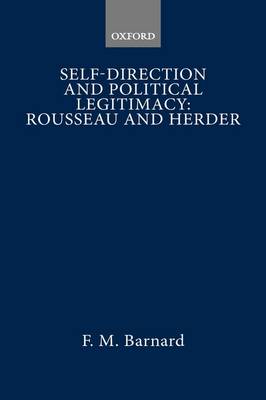This study attempts to show that Herder, like Rousseau, profoundly affected the transformation of states into nation-states, and of subjects into citizens. The status of Jean Jacques Rousseau as a political writer and creative thinker is unquestioned, but Johann Gottfried Herder has received scant attention as a political author, and the extent of his originality as a social philosopher is not widely known. The author finds a "great common theme" as Herder saw the paradox that civilization, which humanizes and moralizes us, also corrupts us. The crux of political legitimacy for both, therefore, and a focus of this study is the possibility of "extended selfhood" - of selves acting with others without injury to either party. Professor Barnard compares their ideas on nature and culture, selfhood and mutuality, paternalism, freedom, and autonomy, highlighting the important features of a world-view which came into being in the eighteenth century and which persists into our own day. The author has also written "Herder's Social and Political Thought", "Herder on Social and Political Culture" and "Socialism with a Human Face: Slogan and Substance".
- ISBN10 0198273274
- ISBN13 9780198273271
- Publish Date 1 February 1989
- Publish Status Out of Print
- Out of Print 7 April 2000
- Publish Country GB
- Publisher Oxford University Press
- Imprint Clarendon Press
- Format Hardcover
- Pages 340
- Language English
